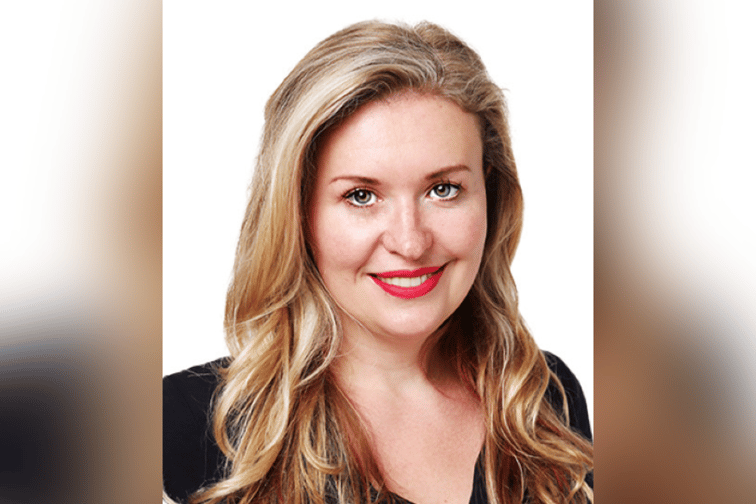

Many Australians probably think their country is quite advanced on gender equity issues. There are more women in senior management positions than ever before, the pay gap is shrinking and flexible work arrangements make it easier to accommodate a career and children.
“It depends who you compare with,” said Tetiana George (pictured above). “If you compare Australia with Afghanistan, you’re amazing!”
George, a Ukrainian-Australian, is CEO and co-founder of Curium, a regtech and claimstech company. She brings an enlightening perspective to the upcoming Women in Insurance Summit in Sydney on August 24.
George has worked in seven countries and lived in about 20.
“In Ukraine, I never experienced any of the stereotypes that I’ve seen here,” she said. “Eastern Europe and China and a lot of post-communist countries share a common view on equality in society.”
She cites the example of universal and free childcare.
“Universal childcare is a communist thing – so nobody actually had a choice, everybody worked,” said George. “There was no such thing as staying at home with your children.”
She’s surprised by the degree of gender inequality in Australia.
“It’s just one of those interesting things that I didn’t expect when I came here,” said George. I guess my grandma might have had similar conversations [about gender issues to women in Australia today].”
George is very excited to be attending the Summit.
“It’s a great opportunity to learn,” she said. “When I was starting my career there was nothing like this - and I wish there was and not just at the start of a career - you should be able to continue learning opportunities like this throughout your career.”
The Summit is returning as a face-to-face event with Marsh as the event partner to further Insurance Business Australia’s ongoing mission to recognise, celebrate and promote diversity across the insurance profession. The Summit was designed to encourage a wider representation of women in senior executive roles, overcome bias, break down leadership barriers and share strategies for building a diverse and inclusive workforce.
George is taking part in a panel at the Summit: Standing out from the crowd with your personal brand.
“I’m the fifth generation of educated women in my family,” she said. “My great grandma was a neurologist and my grandma was designing helicopters, she was an engineer.”
George said gender equity issues are not straightforward and very difficult to generalize about.
“Being a woman does disadvantage you but then there are other levers that you can use to come back into play, for example, networks,” she said.
George said that compared to the gender equity situation in other countries, Australia is “not bad” and “probably in the top quartile.” However, she suggested there are still major hurdles to overcome – including in the insurance industry.
When it was suggested that her position as a CEO indicated that succeeding at the highest level could be getting easier for women compared to 10 or 15 years ago, George wasn’t so sure.
George said she has seen and experienced numerous examples where being a woman, or a foreigner “or whatever, disadvantages you massively.” The clearest example, she said, is the gender pay gap, or the difference between the average earnings of women and men in the workforce.
According to the Workplace Gender Equality Agency (WGEA) the national gender pay gap is currently 13.8%. This is the equivalent of a full-time average weekly earnings difference between women and men of more than $250.00. The financial and insurance sectors have some of the worst pay gaps between men and women. Recent studies have estimated that gap to be nearly 30%.
“So yes, being a woman disadvantages you financially,” said George.
She said there are other, less calculable, gender equity issues for women too.
“Often people expect less than you actually can provide or less than your ambition,” she said.
The statistics also show, she said, that when a woman takes time off to have a child, her career takes a big blow.
“If somebody is about 35 and they’re pregnant and they take a break from their career then their earning potential goes down by some crazy number, like 70% over their lifetime,” she said.
This, she said, is despite flexible work arrangements and parental leave. George has very good reason to be worried by this.
“By the time I’m sitting on that panel [at the Summit] I’ll be nine months pregnant,” she said. “So definitely having something like universal childcare would be at the top of the list for me personally.”
However, she said this mid-career issue for women can’t be fixed with universal childcare alone.
At the upcoming Women in Insurance Summit in Sydney, highlights include presentations on innovation and digital transformation, personal branding, hybrid management strategies, inclusive decision making and mental wellness at the executive level.
Kimberley Jonsson, CEO of CHU Underwriting Agencies is giving the keynote speech, Women leading the way – Inclusive decision-making. The talk will examine how the willingness to be inclusive in decision-making practices can transform a would-be CEO into a more effective leader.
Sylvia Quang, a partner at HWL Ebsworth Lawyers and also president of the NSW Committee of Young Insurance Professionals (YIP), will give the opening remarks and run a speed networking session.
Caitlin Carson, VIC state practice leader for FINPRO for Marsh, is leading that brokerage’s involvement as IB’s event partner for the Summit.
Marsh is joined by sponsors including Arnie, Brooklyn Underwriting, EstImage, Flynn Builders, Innovation Group and Sparke Helmore Lawyers.
The 2022 Women in Insurance Summit will take place at the Sofitel Sydney Wentworth on August 24. The summit will feature a range of powerful keynote sessions, workshops, networking activities, presentations and panel discussions led by influential leaders from the industry on the issues that matter most. You can register for the summit here.
